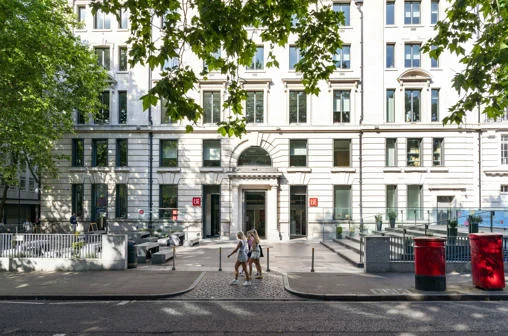Overview
Introduction
The programme is designed to enable you to gain a deeper understanding of the tools available for environmental policy and regulation, and the diverse contexts within which they operate, and evaluate the impact of policies for the economy, society and the natural environment.
The need for greater environmental protection is becoming increasingly acknowledged in both the public and private sectors. There is also a need to explore how broad concerns lead to specific policies or plans, and what factors shape the performance of different regulatory instruments on the ground.
The MSc Environmental Policy and Regulation analyses the nature and efficacy of different approaches to environmental policy and regulation. It considers the influence of different forms of environmental policy and regulation at the international, national and local levels and the role of environmental evaluation techniques. Issues are addressed within a distinctive social science framework that uses theory to understand practice, thereby equipping you with the skills you need to work on environmental policy and regulation in the public, private or NGO sectors.
Preliminary readings
- S Bell, D McGillivray, O Pedersen, E Lees and E Stokes Environmental Law (9th edition, Oxford University Press, 2017)
Entry requirements
Upper second class honours degree (2:1) or equivalent in any discipline but preferably in social science. We will consider appropriate work experience in addition to a sound academic background.
Please select your country from the dropdown list below to find out the entry requirements that apply to you.
Overseas
English language requirements
The English language requirement for this programme is Standard. Read more about our English language requirements.
Competition for places at LSE is strong. So, even if you meet the minimum entry requirements, this doesn't guarantee you an offer of a place.
However, please don’t feel deterred from applying – we want to hear from all suitably qualified students. Think carefully about how you can put together the strongest possible application to help you stand out.
Programme content
Year 1
You'll take one compulsory course, a dissertation, and two and a half units of optional courses.
If you're planning to apply for a PhD within the department, please be advised that you need to take some methods training as part of the MSc. Contact your MSc programme director and the Director of Graduate studies to discuss this requirement.
Courses to the value of one and a half units from a range of options
Why study with us
Discover more about our students and department.
Meet the department
Our department is highly regarded both nationally and internationally – ranked second for Geography in the QS World University Rankings 2025.
Here at LSE, we offer a unique opportunity to study geography in a university with a worldwide reputation in the social sciences. We specialise in economic, urban and development geography, environmental social science and climate change, all with a strong emphasis on real-world applications.
Many of our academics are internationally renowned in their fields. You’ll find a good balance of experienced and younger academics in the department. Within the team, we’ve had three holders of the highly prestigious Philip Leverhulme Prize Fellowships for researchers under the age of 36.
Our research is interdisciplinary and international in its scope and we work closely with academics from several other departments at LSE. Teaching staff are active within the following research centres:
- Cañada Blanch Centre for Contemporary Spanish Studies
- Centre for Climate Change Economics and Policy
- Centre for Economic Performance
- Grantham Research Institute on Climate Change and the Environment
- LSE London
- Middle East Centre
- Saw Swee Hock Southeast Asia Centre
- Transition Pathway Initiative Centre
- What Works Centre for Local Economic Growth
Based in the heart of London opposite Lincoln’s Inn Fields, the department offers a lively, welcoming and supportive community for students and staff.
Learn more about our undergraduate, postgraduate and PhD study opportunities, as well as our research.
Why LSE
University of the Year 2025 and 1st in the UK in 2025 and 2026
Times and The Sunday Times - Good University Guide 2025 and 20261st in London for the 14th year running
The Complete University Guide - University League Tables 20266th in the world for the study of social sciences and management
QS World University Rankings by Subject 20256th in the world for leading the way in social and environmental sustainability
QS World University Rankings: Sustainability 2026Your application
Overview
We welcome applications from all suitably qualified prospective students. At LSE, we want to recruit students with the best academic merit, potential and motivation, irrespective of background.
We carefully consider each application and take into account all the information included on your application form, such as your:
- academic achievement (including predicted and achieved grades)
- statement of academic purpose
- two academic references
- CV.
See further information on supporting documents.
You may need to provide evidence of your English language proficiency. See our English language requirements.
This programme is available as part of an ESRC-funded pathway onto a PhD programme. The 1+3 scheme provides funding for a one year research training master's linked to a PhD programme and is designed for students who haven't already completed an ESRC recognised programme of research training. An application must be submitted for the relevant master’s programme, including a research proposal for the PhD aspect of the pathway. Applicants must also indicate their wish to be considered for the 1+3 pathway within their personal statement.
When to apply
Applications for this programme are considered on a rolling basis. This means that applications will close once the programme is full.
There is no fixed deadline. However, if you’d like to be considered for any funding opportunities, you must submit your application (and all supporting documents) by the funding deadline. See the fees and funding section below for more details.
Fees and funding
The table of fees shows the latest tuition fees for all programmes.
You're charged a fee for your programme. At LSE, your tuition fee covers registration and examination fees payable to the School, lectures, classes and individual supervision, lectures given at other colleges under intercollegiate arrangements and, under current arrangements, membership of the Students' Union. It doesn't cover living costs or travel or fieldwork.
Home
Home student fee (2026/27)
For this programme, the tuition fee is different for home and overseas students depending on their fee status.
Overseas
Overseas student fee (2026/27)
For this programme, the tuition fee is different for home and overseas students depending on their fee status.
Learning and assessment
How you learn
How you're assessed
You'll be assessed on a combination of unseen examinations and research essays. You'll develop a detailed proposal for your dissertation on a topic in the field of environment, but of your own choosing and design. You'll work on your own on the dissertation, with limited advice from a supervisor.
All taught courses are required to include formative coursework which is unassessed. It's designed to help prepare you for summative assessment which counts towards the course mark and to the degree award. LSE uses a range of formative assessment, such as essays, problem sets, case studies, reports, quizzes, mock exams and many others.
Graduate destinations
Overview
You'll have the skills to enter a wide variety of employment opportunities in the public sector, non-governmental organisations (NGOs), international organisations, research, consultancy and national/multinational firms.
Further information on graduate destinations for this programme
Median salary of our graduate taught students 15 months after graduating:
Top 5 sectors our students work in:
Career support
From CV workshops through to careers fairs, LSE offers lots of information and support to help you make that all-important step from education into work.
Many of the UK’s top employers give careers presentations at the School during the year and there are numerous workshops covering topics such as job hunting, managing interviews, writing a cover letter and using LinkedIn.
See LSE Careers for further details.

